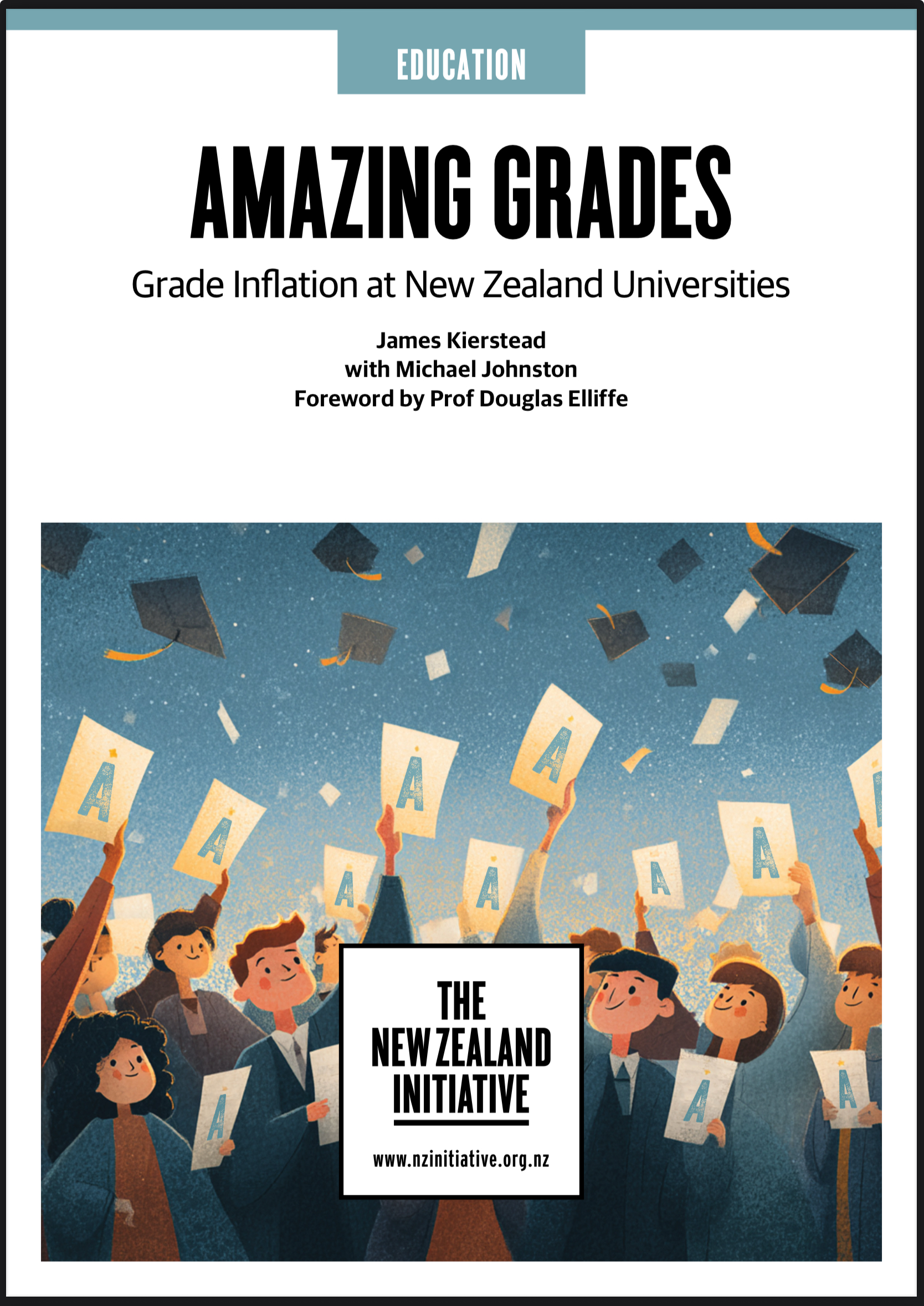Nearly half of all grades at the University of Auckland were As during COVID-19, part of a dramatic rise in top marks that cannot be explained by academic improvement.
Amazing Grades: Grade Inflation at New Zealand Universities, is the first analysis of grading patterns across all eight New Zealand universities. The study by Dr James Kierstead with Dr Michael Johnston found the proportion of A grades has increased from 22% to 35% since 2006 – a rise that is very unlikely to have been caused by improvements in student performance.
"An A grade today doesn't mean what it used to," said Dr Kierstead. "It used to signal exceptional work. Now that meaning has been diluted.”
Key findings:
- The percentage of A grades (A+, A, or A-) has increased from 22% to 35% since 2006, with an especially dramatic rise during COVID-19, a slight fall immediately afterward, and then a rebound
- The percentage of As in individual disciplines displays a similar pattern, as do pass rates, which are now mostly above 90% (and even above 95% in a couple of cases). These rises cannot be explained by better incoming students, more female students (who tend to get better grades), more funding, or a higher ratio of staff to students
- The grade inflation at our universities is mainly the product of incentives produced by the current university system, and especially its emphasis on student numbers, which academics try to boost by giving out high grades
Testimonies from academics back up this idea of systematic pressure. "Administrations have made it clear that students equal funding,” a University of Auckland lecturer reported. “If your programme is perceived as too tough, your programme may lose students to other programmes."
A Victoria University tutor described being told to pass all students who handed in their assessments. An AUT tutor received marking guidelines instructing full marks for any "proper attempt" to answer a number of questions, regardless of whether or not the answers were correct.
The report also places New Zealand in an international context. Grade inflation has been steeper in England and the United States in recent decades, but this report shows that grade inflation should also be a concern here.
When most students receive top marks, employers cannot identify genuine talent. High-achieving students see their accomplishments devalued. Grade inflation also reduces incentives on all students to work hard, as high grades seem guaranteed.
“If failure is impossible, success becomes meaningless,” said Prof Douglas Elliffe, Professor of Psychology at the University of Auckland. “We need to restore to our students the right to feel pride in true achievement, and we can only do that by evaluating their accomplishments honestly.”
In its final chapter, the report surveys a number of approaches to mitigating grade inflation, including statistical moderation techniques, changing the incentives driving grade inflation, and changing the culture of grading at our universities.
"Many academics understand what's happening but operate within a system that would penalise them for taking a rigorous approach to grading," Dr Kierstead said. "We need a national conversation about grade inflation and how to reduce it. Until we change the underlying incentives, academics and universities will continue to hand out higher grades. At the moment, they don’t have much choice."
Click here to download the two-page summary of Amazing Grades: Grade Inflation at New Zealand Universities.
Dr James Kierstead discusses his report with our Executive Director Dr Oliver Hartwich on our latest podcast episode. Listen below.
Dr James Kierstead discussed his report with Prof Douglas Elliffe and Dr Oliver Hartwich on our webinar launch of the report. Watch below.






